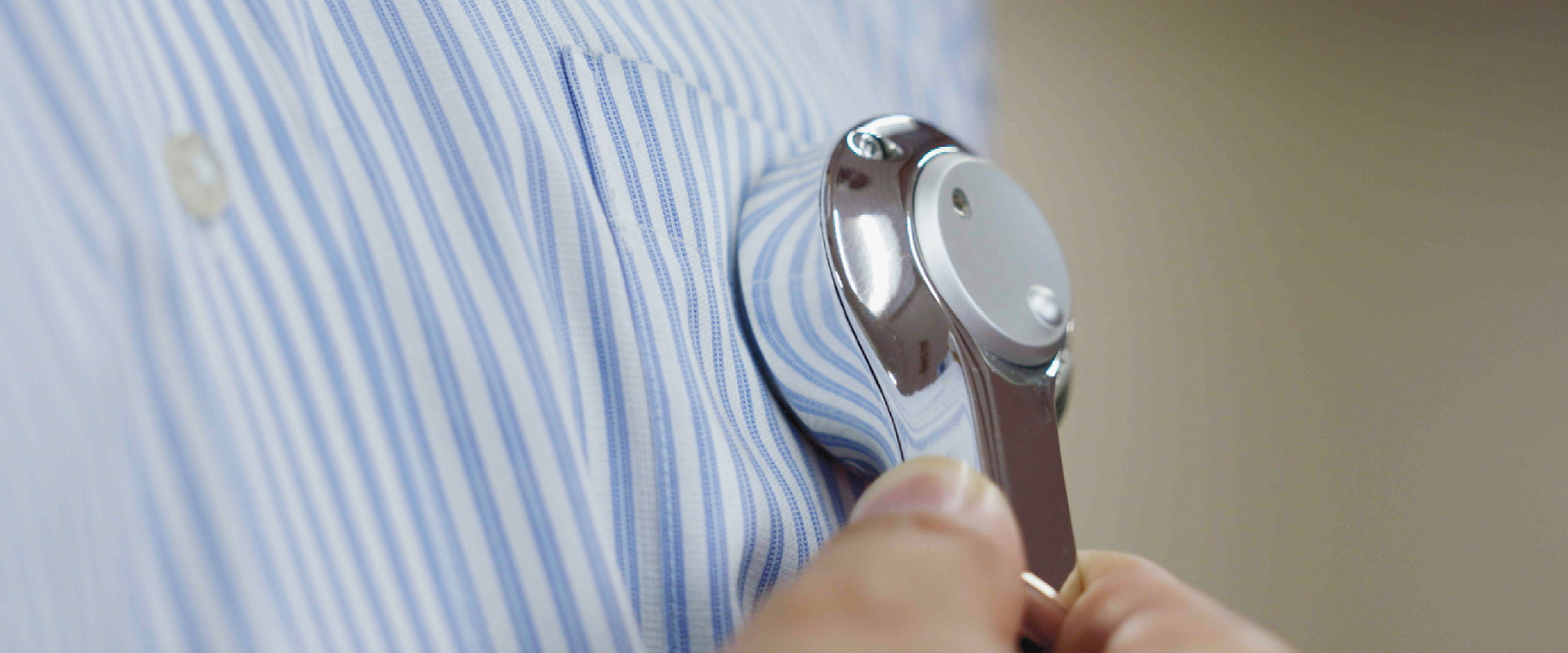The Heart of the Matter: Japanese ingenuity saving lives

The Heart of the Matter
Japanese Ingenuity Saving Lives
“Remote medicine is going to save a lot of lives...detecting the early stages of the disease is key to good prognosis.”— Dr SOEJIMA Kyoko,
Professror of Cardiovascular Medicine, Kyorin University
The world is developing at an extraordinary pace. But as global societies accelerate into the future, an invisible threat stands to undermine their progress and stability.
Cardiovascular disease, the number one cause of death globally, claims roughly 17.9 million lives each year. That figure represents 31 percent of all deaths, according to the World Health Organization (WHO), and is expected to climb to 23.6 million in the next 10 years.
The fallout extends beyond the devastating loss of human life. By 2030, the global cost of cardiovascular disease is expected to total over $1 trillion. That eye-opening economic tally accounts for not only a direct hit on public health resources, but also potential productivity lost from workforces because of premature death and disability. According to a survey conducted by Health Affairs, at least 21 million years of future productive life are lost in Brazil, China, India, Mexico and South Africa each year because of cardiovascular disease.


The causes that underlie heart disease are many. As economies boom, widespread urbanization and advanced technology in the workplace lead many to live more sedentary lifestyles. At the same time, convenience culture benchmarks like fast food and tobacco use can be linked to increased rates of hypertension, diabetes and ischemic heart disease. Those diseases put populations at higher risk of deadly heart attacks and strokes.
Heart disease might be invisible, but the problems it poses lie in plain sight. This explains why global agencies such as the WHO are pressing countries to encourage lifestyle changes, improve screening for heart conditions and bolster healthcare initiatives.
Japan’s healthtech Innovation
For years, government and business leaders in Japan have put healthcare at the heart of their mission to find high-tech solutions for global healthcare problems.

Enhanced remote medical care services
The deregulation of telemedicine has made it easier for populations that lack access to hospitals to receive care.

AI and robotics at long-term care facilities
Advanced technology at care homes is easing the burden on caregivers and improving the quality of life for residents. For example, several thousands of facilities are currently testing nursing care robots.
“By embracing the latest technology, cardiac disease assessment will become accessible wherever you are in the world.”— OGAWA Shimpei, CEO & Founder, AMI
The investment is paying off in the fight against heart disease as well. Rapid development in advanced heart failure treatments, such as myoblast cell-sheet transplants, are improving the prognosis for heart disease patients across the country, while ground-breaking products reinforce Japan’s position at the forefront of innovation.
A super stethoscope created by AMI, a fast-growing healthtech venture based in Kumamoto Prefecture, can detect abnormal heart sounds through acoustic analysis. The stethoscope then transmits biometric data in real time to a remote device, which provides automatic diagnosis using AI algorithmic technology.


The AI-powered super stethoscope detects electrocardiogram signals and heart sounds simultaneously. Thanks to a specialized pad that cuts out noise pollution like breathing sounds, human voices and the clatter of medical equipment, the super stethoscope is able to identify heart murmurs clearly, and it is easy for patients to use on their own. It then conducts acoustic analysis, processed by the AMI’s unique algorithm, and transmits the biometric data in real-time to a remote device, which gives an automatic diagnosis.
This technology allows doctors to detect abnormalities earlier and faster in patients located anywhere in the world, whether they are at home, in the office or in a disaster site. In places like rural Japan, where elderly populations often lack access to hospitals, or remote areas like the Amazon or Sub-Saharan Africa, a breakthrough in telemedicine like the super stethoscope can increase treatment options and potentially save thousands of lives.


Such technology is also supporting the fight against Covid-19. When coronavirus broke out in Japan, AMI delivered 60 of its remote auscultation systems to Covid-19-compatible medical sites for free, reducing the risk of infection for frontline care providers and helping to slow the spread of the disease.
This remote care technology can be applied not just to future crises, but also to everyday needs, like chats with primary care physicians or pharmacists.
Connected solutions
As economies have grown across the world, so has heart disease, and at a cost of billions of dollars. Yet despite the problems put forward by aging and advancing societies, new technologies are improving the outlook of our global healthcare networks, streamlining patient care and cutting costs across the board.
Whether it is regenerative medicine, robots in nursing homes or stethoscopes powered by AI technology that offer telemedicine solutions in times of crisis, the creative ideas emerging from Japan, underpinned by technical ingenuity, are changing the game for patient care and diagnosis across the globe.






